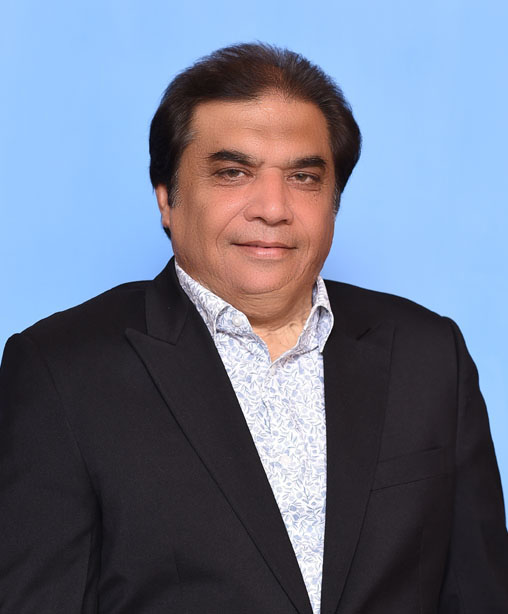Pakistan among 10 worst countries for internet freedom
KARACHI: The government’s attempts to tighten its grip on the internet — the information superhighway — through a series of controversial laws and policies has placed Pakistan among the 10 worst countries for internet freedom for a second straight year.
The Prevention of Electronic Crimes Act (PECA) 2016, also seems to have done little to improve the state of internet access or opening up content and upholding rights of citizens to use the internet.
According to the “Freedom on the Net 2016” report, by Washington DC based activist group Freedom House, Pakistan is ranked 10th, just above the likes of Bahrain and Saudi Arabia.
The annual report gives Pakistan a score of 69 out of 100 (with 100 the worst score) and is included in the ‘not free’ category.
Over the past five years, Pakistan’s score fell from 55 in 2011 to 69 in 2014 and has remained stagnant since. The scores are marked for three key areas including access to internet, restrictions on accessing certain content and violations of a user’s rights.
While access to the internet has greatly improved in the country, Pakistan’s overall score has suffered due to greater restrictions on content in the country and increasingly impinging on a user’s rights of privacy, freely acting on the internet and repercussions for online activity including legal prosecution, imprisonment, physical attacks, or other forms of harassment.
In this regard, the report pointed how in two separate cases, two men were sentenced to 13 years in prison for promoting religious or sectarian hatred online. Further, a political activist was charged by Peshawar police for tweets regarding a judge’s relative.
With internet freedom in the country “repressive”, the worst scores attributed to Pakistan were for the greater restrictions placed on content online and violations of rights.
While the report noted that restoration of YouTube, blocked for nearly four years owing to a sacrilegious film, through a localised domain was positive, it said that people feared that “YouTube PK would be subject to stricter censorship than its international counterpart”.
This fear was not helped by the fact that Pakistan enacted policy and laws which granted sweeping powers to the Pakistan Telecommunication Authority (PTA) to “monitor and manage content”.
This was done first through the Telecommunication Policy 2015 and then further reinforced through the Prevention of Electronic Crimes Act 2016 passed in August which grants PTA the powers to “issue directions for removal or blocking of access of any information through any information system” which runs afoul of “the glory of Islam or the integrity, security and defense of Pakistan”. The report noted that a “lack of transparency extends to content affected by censorship”.
“There are no published guidelines outlining why content is blocked or how to appeal. Individuals and groups can also initiate censorship by petitioning courts to enact moral bans on online or traditional media content,” the report added.
A prime example was how in January 2016 PTA sent a list of 429,343 websites to internet services providers with directions to block them at the domain level. While a bulk of the websites were pornography websites, which a court had ordered the authority to block, the list contained a number of legitimate websites as well.
“The manner in which the list of websites has been vetted to avoid non-pornographic websites from being blocked has not been made clear to the public,” the report said.
“Pakistan has ranked low for five consecutive years because of the repressive regime of internet laws in the country,” said Nighat Dad, the executive editor of Digital Rights Foundation (DRF), which had contributed to the report.
“With increased access to information, the state sponsored censorship and user data regulation has increased,” she added. “There is no check and balance on what gets censored, and who authorises it.”
Surveillance
The report noted that while Pakistani authorities had been using broad and powerful digital surveillance, it expressed concern at how some of these powers had been granted legal cover under the PECA without instituting due oversight mechanisms.
Furthermore, it noted that some security agencies had already been acting above and beyond provisions of laws.
“Pakistani authorities, particularly intelligence agencies, appear to have been expanding their monitoring activities in recent years, while provincial officials have been exerting pressure on the central government to grant local police forces greater surveillance powers and location tracking abilities, ostensibly to curb terrorism and violent crimes.”
Dad echoed the fear that PECA would do little to actually protect the common man against a big brother government.
“Even after the passage of cybercrime law, which in reality authorises state for increased surveillance and censorship, user rights will be violated,” she said, adding that the new law had actually made certain things worse.
“What we see post-PECA is a more repressive framework where the content is censored as per the law, and the citizens information is at stake. The idea of freedom of expression, which PECA gives impression of restoring, is targeted with this very law,” Dad said.
When asked about how she saw things change in the upcoming year, she said just two words.
“Not Free.”


